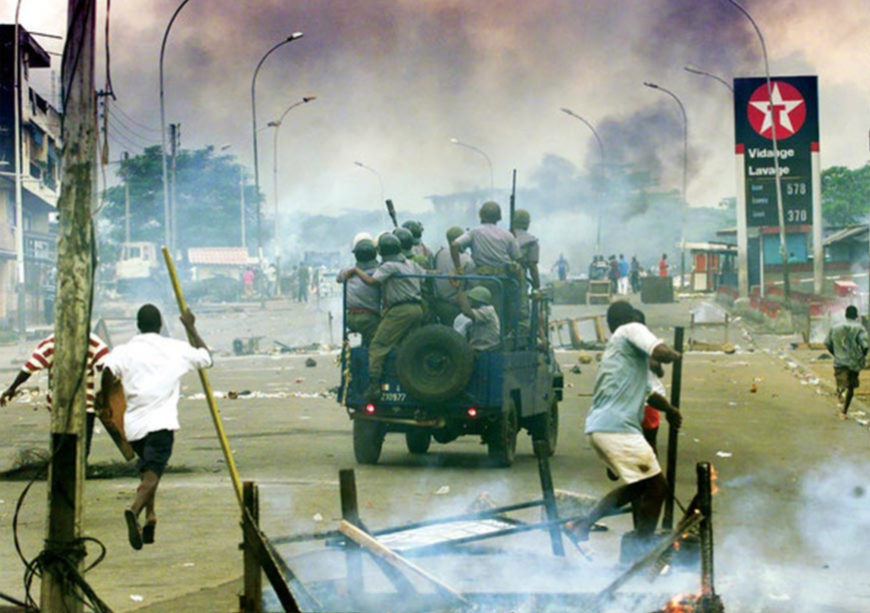
On 16 September 2023, the three West African junta-led countries of Burkina Faso, Mali, and Niger declared the creation of the Alliance of Sahel States, or L’Alliance des États du Sahel (AES). On 28 January 2024, they took their pact one step higher when three national leaders simultaneously declared on their national television that they would be withdrawing their countries from the 15-member West African regional organisation, the Economic Community of West African States (ECOWAS) effective immediately. This undoes the decades of regional integration work and affects the ongoing attempts as well, which have been disrupted by several coups. As the move would thwart the region’s commerce and service flows worth US$150 billion annually, some experts have termed this West Africa’s Brexit moment.
Background of the Alliance
All three of the Alliance’s member nations have had coups since 2020. It started in Mali three years ago when Colonel Assimi Goita’s soldiers staged a mutiny and attempted a coup. In May 2021, Colonel Goita carried out a second coup against an interim government. In 2022, Burkina Faso experienced two military coups, joining this trend of falling regimes. Then, on 26 July 2023, Mohamed Bazoum, the democratically elected President of Niger, was overthrown again by the presidential guard.
Colonel Goita carried out a second coup against an interim government. In 2022, Burkina Faso experienced two military coups, joining this trend of falling regimes.
The underlying cause of all these coups is the anger against the government vis-à-vis their inability to put an end to the rebel insurrection. Many army personnel are dying from insurgent attacks as they are neither adequately equipped nor trained to withstand such attacks. Poverty, inequality, and corruption are at an all-time high.
The three states’ relations with France have soured since the coups; following a tense standoff with the Junta governments, France was forced to withdraw its troops from Burkina Faso and Mali. In December 2023, the French operations in West Africa came to an end when the last of their troops left Niger. In the same month, UN peacekeeping mission MINUSMA also ended its 10-year vigil in Mali and left the country. All of these countries were ruled by France, which is still accused of neo-colonialism, where France is taking their natural resources with very little in return.
ECOWAS and the Alliance of Sahel States
Although it eventually softened its stance, ECOWAS had vowed to militarily engage in Niger in response to the coup. This placed the other two nations in an awkward situation. While Niger has an abundance of uranium, Mali and Burkina Faso were anomalies with little to no natural resources. In a way, it was assumed that Niger is not the same, and to protect its interests in the region, the West won’t let the government in Niger fall so easily.
But as time went on, it soon became apparent that ECOWAS’s threats to reinstate the ousted Nigerien leader Mohamed Bazoum were baseless. Not only did the citizens seem to be resistant to any external military intervention, but Burkina Faso and Mali also pledged right away to protect Niger from any military action. The Alliance is the result of this mutual solidarity.
While Niger has an abundance of uranium, Mali and Burkina Faso were anomalies with little to no natural resources.
Ironically, despite ECOWAS sanctions, dialogues, and threats of military action, the military authorities haven’t given a precise timeline for restoring constitutional governance since the coups. Instead, they have become more antagonistic toward the bloc and have charged that it is betraying its founding principles, becoming a threat to its member states and influenced by outside forces.
Alliance of Sahel States: A regional security pact or a tool for legitimacy?
The Alliance of Sahel States was established by signing the Liptako-Gourma Charter. The Liptako-Gourma region is the place where all three countries’ borders intersect. This large region of approximately 370,000km² is also home to 45 percent of these three countries’ total population. The region has been experiencing a severe security crisis due to the presence of different militia groups. Indeed, by February 2023, Burkina Faso and Mali had witnessed an overwhelming number of increasing deaths related to political violence, which rose by 77 percent and 150 percent, respectively. Burkina Faso has surpassed Afghanistan to become the world’s number one victim of terrorism.
In this mutual defence agreement, the Alliance of Sahel States pledges its members to support one another militarily should any of them come under attack. The accord also obligates the three nations to cooperate to end or prevent armed uprisings. The leader of Mali’s transitional administration, Colonel Assimi Goïta, declared that the agreement would create “an architecture of joint defence and mutual support for the benefit of communities.” Nonetheless, it is essential to distinguish the Alliance of Sahel States from “the Sahel Alliance,” another similarly named Alliance in the region founded in 2017 and consists of 17 full members and nine observers.
Impact of the Alliance on the region
The Alliance is set to diminish French influence in the region. Once-powerful France, first as a colonial power and then an occupying force, is fast losing its military and economic influence from the Sahel to the Gulf of Guinea region. Going forward, the Alliance may spell doom for France and bring an end to its not-so-glorious postcolonial legacy in West Africa.
The leader of Mali’s transitional administration, Colonel Assimi Goïta, declared that the agreement would create “an architecture of joint defence and mutual support for the benefit of communities.”
The Alliance is also bad news for ECOWAS, as the three countries opted out of the ECOWAS in the same way Mauritania withdrew its membership. This may not be helpful to continental integration. It is not only the ECOWAS that will be divided against itself; it is mainly the Francophone states that will be more divided against themselves. For instance, Benin Republic is being used as an access territory to attack Niger. As a result, Niger strained its military cooperation with Benin. In the same vein, the pro-France countries cannot but be at loggerheads with those not favouring France.
Finally, while speculations are high that the move would draw non-Western powers such as Russia, China, and Iran closer, Russia would clearly be the winner of these developments. In January 2024, Russia has agreed to establish military cooperation with Niger. Several Russian military personnel recently arrived in Burkina Faso to protect the military leader. Meanwhile, despite the death of Yevgeny Prigozhin, the chief of Russia’s private military group, around 1,000 Wagner troops continue to fight in Mali. With waning French influence in contrast to the growing Russian presence, the region may eventually become a theatre for a proxy war.
Way forward
Several Western experts claim that with the rising widespread anger against French neocolonial policies, the putschists are using this Alliance as a cover to increase their grip over power and hide their fear of uncertainty. It could also explain why there seems to be a recent upsurge in anti-French sentiment amongst the locals of these nations, as the putschists have successfully capitalised on the widespread perception that the region’s democratically elected authorities are nothing more than puppets playing to the tunes of France. Nonetheless, the Alliance is clearly more than just a security or military agreement. During the signing ceremony, Mali’s Defence Minister Abdoulaye Diop informed reporters that the Alliance would combine military and economic efforts among the three countries.
With waning French influence in contrast to the growing Russian presence, the region may eventually become a theatre for a proxy war.
The three landlocked countries are among the poorest nations in the world. Despite the announcements, without finance and technical capacity, it won’t be easy for them to build new institutions. Although the Alliance fits within the framework of sub-regional integration, the block’s eventual success will be determined by how well these nations can formulate an economic agenda that benefits their citizens.
Samir Bhattacharya is an Associate Fellow at the Observer Research Foundation
The views expressed above belong to the author(s). ORF research and analyses now available on Telegram! Click here to access our curated content — blogs, longforms and interviews.




 PREV
PREV


